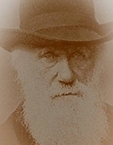The 10th annual Darwin Day lecture will be given at 7:30 p.m. Feb. 12th in the Hamilton Center (in the University Center). Michael Novacek, Senior Vice President and Provost of Science at the American Museum of Natural History, will speak on “Terra: Our Million-year-Old Ecosystem and the Threats That Now Put It At Risk.” His talk will be preceded by a reception, which features an edible tree of life, from 6:45-7:20 p.m. in the Upham Hall foyer.

The University Library has a copy of his 1996 book Dinosaurs of the flaming cliffs in the 3rd-floor Main Collection (call no. QE862.D5 N684 1996). UWW students and staff can borrow copies of his latest book, Terra, and the 2001 book he edited, The biodiversity crisis: losing what counts, by requesting them from other UW System campus libraries via the free Universal Borrowing service. Requested items arrive in 2-4 weekdays.

Mr. Novacek also is the author of many articles in magazines and scientific journals that can be found and read online using the Library’s databases, e.g., Academic Search Premier. One article, for example, is “The current biodiversity extinction event: Scenarios for mitigation and recovery” published in Proceedings of the National Academy of Sciences of the United States of America in 2001. This article discusses options for recovery and maintenance of biodiversity, degradation of habitat and extinction of species caused by human activities, and the need for international cooperation and input from the scientific community to mitigate the harmful effects of human activities.
Here is an excerpt from the preface to The biodiversity crisis:
“When the last millennium began, the world was mostly uncharted: mysterious, even terrifying in its vastness outside clusters of human habitation. Nature over large portions of continents and oceans was wild and untamed, but at the same time protected from the invasion of a comparatively concentrated human population. At the end of the millennium … humans, through their sheer numbers and their capacity for altering the natural state of the planet, present a threat to the biosphere that rivals some of the great extinction events of the past.”

The goal of the annual Darwin Day celebration is to “show why evolution matters–specifically, to illustrate how valuable Darwinian thinking can be in addressing significant societal challenges.” More about last year’s presentation, which addressed evolution of viruses, is on the University Marketing & Media Relations website. A podcast of the 2007 lecture is available from the Darwin Day web page.

I attended this event last year and it was great, including the edible desserts made to look like critters of one sort or another. Highly recommended!